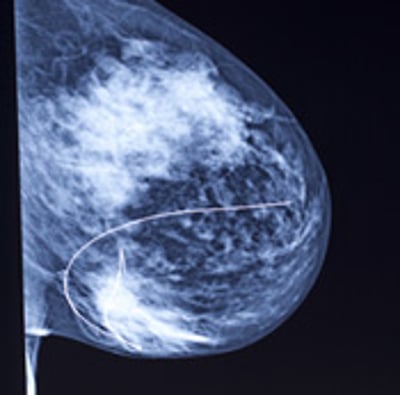FORCE's eXamining the Relevance of Articles for You (XRAY) program looks behind the headlines of cancer news to help you understand what the research means for you.
XRAY is a reliable source of hereditary cancer research-related news and information.
Learn more about the XRAY program
Categories Clinical Trials
Personal Story : Pamela Munster's story of cancer in the family
Most relevant for: People with an inherited mutation linked to cancer
In her essay in The Washington Post, Dr. Pamela Munster recounts her family's history with cancer associated with a mutation in the BRCA2 gene. She details her father's extraordinary journey with pancreatic cancer, one of the most aggressive and deadly cancers. (11/27/18)
Read More
Article : The importance of racial diversity in clinical trials
Most relevant for: People who are a member of a racial or ethnic minority group
This article by journalists Caroline Chen and Riley Wong looks at racial disparities between participation in clinical trials and the population of people with cancer. (11/6/18)
Este artículo está disponible en español.
Read More
Relevance: Medium-High


Strength of Science: Medium


Research Timeline: Human Research


Study : Immunotherapy may lead to long-term remission of metastatic breast cancer
Relevance: Medium-High


Strength of Science: Medium


Research Timeline: Human Research


Most relevant for: People with advanced cancers
Metastatic breast cancer is often difficult to treat. In a new approach, called adoptive cell therapy (ACT), a patient’s own T-cells (a type of cancer-fighting immune cells) are collected, multiplied in a lab, and then returned to the patient. The goal is to enhance the patient’s immune system with many more T-cells that recognize and attack metastasized tumor cells. This study reports on a single patient whose metastatic breast cancer is still in remission (no evidence of disease) after more than 22 months following ACT. (8/16/18)
Read More
Relevance: Medium


Quality of Writing: Medium-Low


Article : Headlines claim drug combination destroys tumor in 11 days—is this too good to be true?
Relevance: Medium


Quality of Writing: Medium-Low


Most relevant for: People with Her2-positive breast cancer
A recent IFLScience headline proclaimed "Remarkable Breast Cancer Trial Destroys Tumors in Just 11 Days." This sounds amazing but it leaves out key facts. First, the finding applies only to HER2-positive breast cancer, not all breast cancers. More importantly, the results are from a conference presentation and have not yet appeared in a peer-reviewed scientific journal. What does that mean for breast cancer patients? (12/6/16)
Read More
Relevance: High


Quality of Writing: High


Article : Huffington Post article brings attention to metastatic breast cancer
Relevance: High


Quality of Writing: High


Most relevant for: People diagnosed with metastatic breast cancer
Barbara Jacoby's Huffington Post piece, "How do breast cancer and metastatic breast cancer differ?" emphasizes the need for more treatment options for patients with advanced breast cancer.
Read More